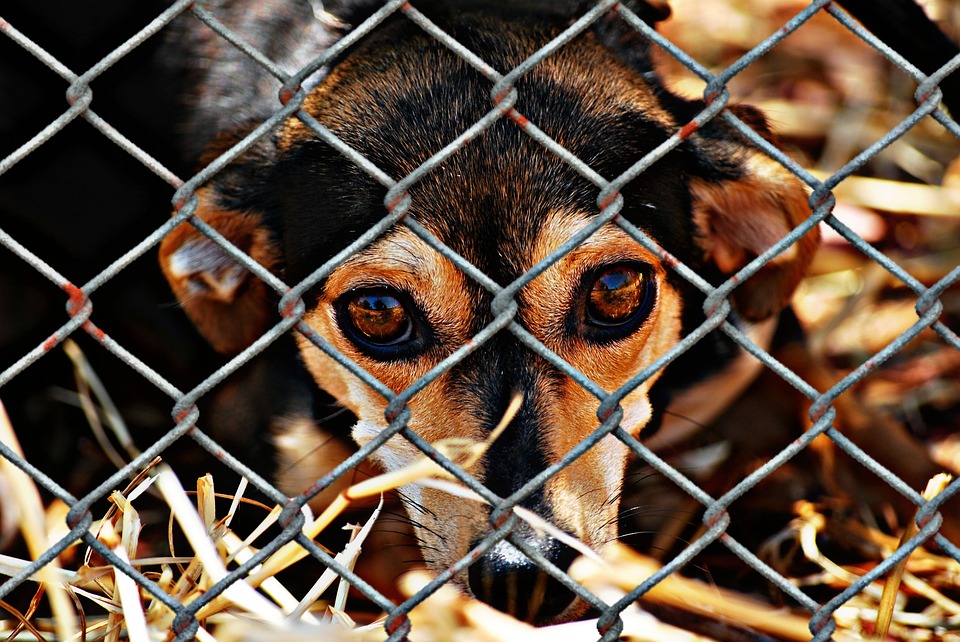Continúa la protesta mundial contra el festival de carne de perro Yulin
Recientemente se anunció que el gobierno chino prohibiría la venta de carne de perro, durante el festival anual de carne de perro de Yulin. Esto sucedió después de las protestas masales y globales de los ciudadanos interesados, las activistas locales y otros grupos. Esto se realizo entre otras cosas a traves de peticiones y las redes sociales. También la población china se rebela cada vez mas contra esto. Una encuesta china hecha por diversas organizaciones de derechos animales muestra que una gran mayoría de los encuestados esta en favor de la prohibición del infame festival de Yulin de Yulin e incluso exigen que se prohiba por completo comer carne de perro. El Partido para los Animales pide a sus seguidores a firmar la petición en contra de la venta de carne de perro.
Durante el festival anual de Yulin el 21 de junio, alrededor de 10.000 perros son sacrificados únicamente para ser comidos por los asistentes al festival. Contrariamente a lo que a menudo se afirma, no se trata de una fiesta tradicional, pero sólo existe desde 2009. Muchos de los perros son mascotas robadas. Por otra parte, los animales son a menudo enfermos y heridos, y el comercio de carne de perro, dado el riesgo de la rabia y el cólera, es una seria amenaza para la salud.

Organizaciones de bienestar animal informan que, aunque las autoridades chinas hayan emprendido actuar fuertemente en contra de la venta de carne de perro en el festival, la prohibición se mantiene todavía apenas. Por lo tanto, el Partido por los Animales, junto con otras organizaciones, llamó a sus partidarios a firmar la petición de Avaaz para seguir firmando la petición contra Yulin. Por lo que la presión sobre el gobierno chino sigue siendo fuerte para que hagan cumplir la prohibición de verdad. Desde el llamado del Partido por los Animales el 28 de junio, más de 4.000 seguidores del Partido para los Animales en los Países Bajos ya firmaron la petición. A nivel mundial, ya se han recogido millones de firmas.
Activistas chinos señalan que la prohibición de la carne de perro en Yulin es un buen paso, pero no hay que olvidar que hay un problema mayor del comercio de carne de perro todos los días en todo el país. Tal problema requiere un enfoque integral y coherente.
It was recently reported that the Chinese government was to ban dog meat sales at the annual Yulin Dog Meat Festival, as a result of mass protests by concerned citizens, local activists and other groups throughout the world, through petitions and social media. In China too, more and more people are rebelling. A Chinese survey of several animal rights organisations shows that the vast majority of respondents are in favour of a ban on the notorious Yulin Festival and on eating dog meat altogether. The Party for the Animals calls upon its members to sign the petition against the sale of dog meat.
At the annual Yulin Festival on 21 June, around 10,000 dogs are slaughtered and eaten by visitors of the festival. Contrary to popular belief, the Yulin festival is not a traditional event but one invented in 2009. Many of the dogs are stolen pets. As many of the animals are seriously ill or injured, the dog meat trade poses a serious threat to public health considering the risk of rabies and cholera.

Animal welfare organisations report that, despite promises of the Chinese authorities to fight against the sale of dog meat, the ban is barely maintained. That is why the Party for the Animals and other organisations involved have called on their members to keep signing the Avaaz petition against Yulin, in order to put pressure on the Chinese government to uphold the ban. Since the Party for the Animals’ appeal of 28 June, over 4,000 supporters of the Dutch Party for the Animals have already signed the petition. Worldwide, millions of signatures have been collected.
Chinese activists point out that although the ban on dog meat sales at the Yulin Festival is a good step forward, we must not forget about the even bigger issue of the daily dog meat trade throughout the entire country. This problem needs a holistic and consistent approach, according to the activists.